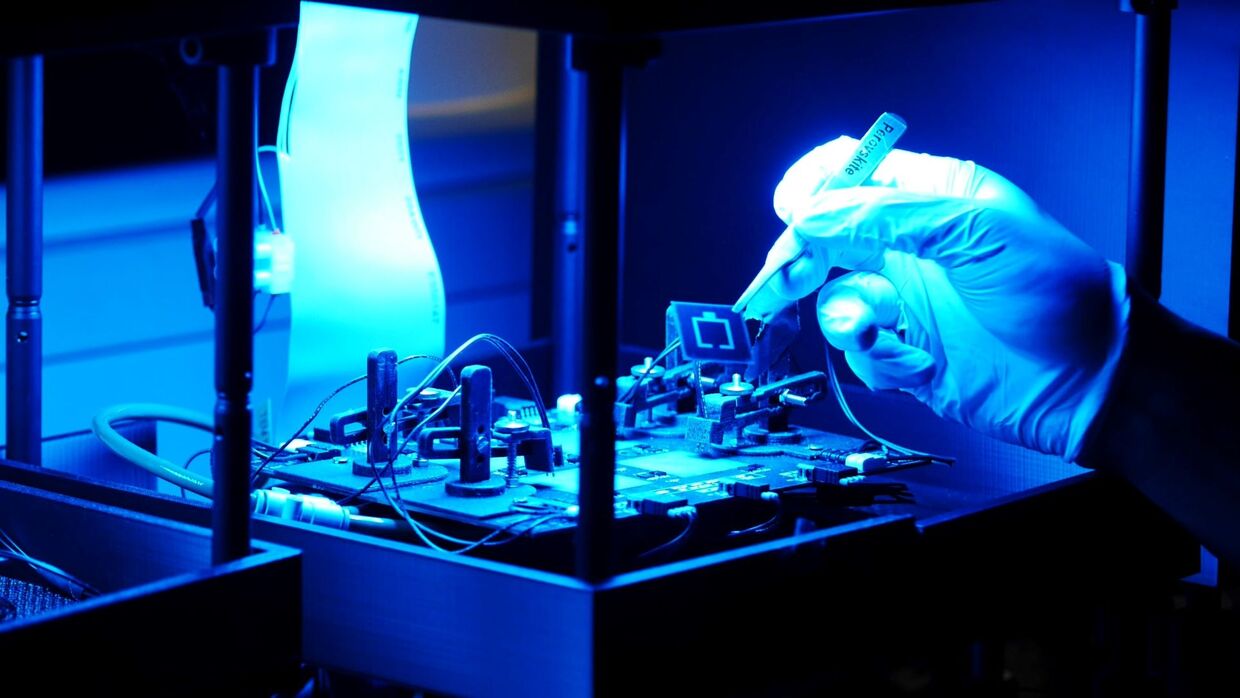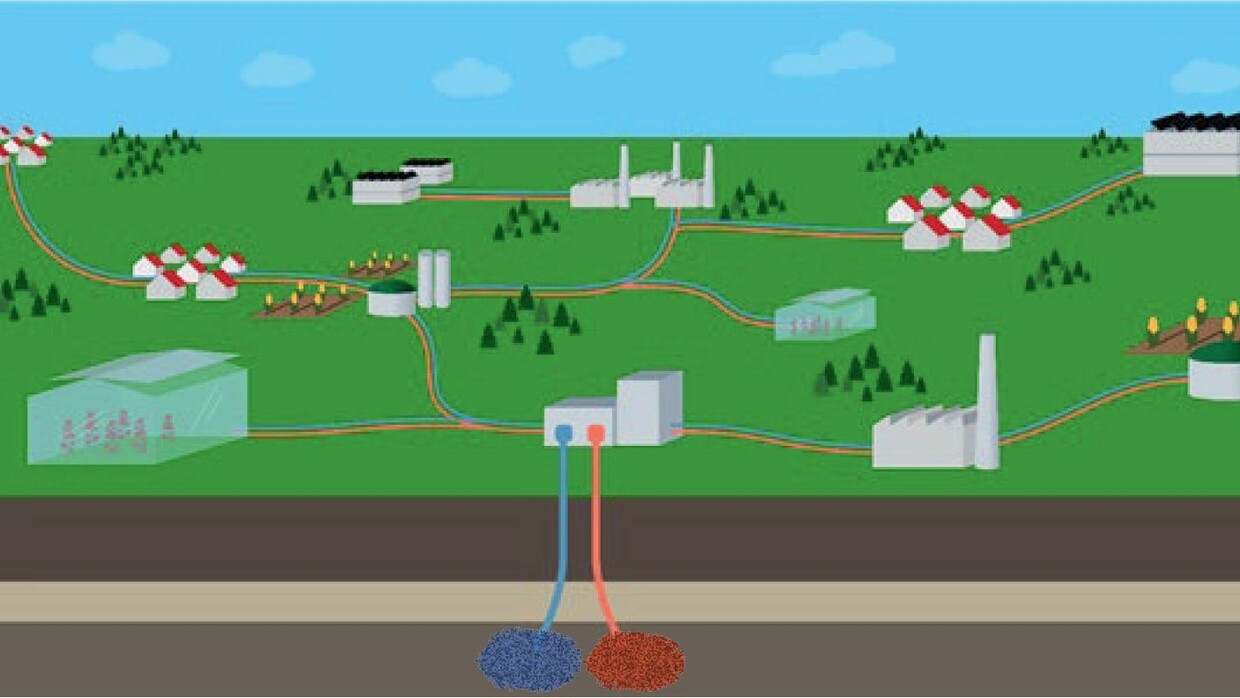Zeitenwende Energy Security
The Russian war of aggression against Ukraine highlights the heavy dependence of Germany's energy supply on imports of fossil fuels such as gas, oil and coal. The disruptive geopolitical changes are challenging our society to rapidly advance its own sovereignty in the areas of energy and raw materials supply - and at the same time not to lose sight of the goal of climate neutrality. Helmholtz Energy faces up to its social responsibility: together with our partners from politics and industry, we want to accelerate central research activities in order to contribute to our security of supply with a rapid transfer of key technologies and know-how. To this end, Helmholtz Energy has developed four initiatives in direct response to the Russian war of aggression:
Read the Flyer Zeitenwende (in German)
Securing raw materials - through flexible and sustainable closure of material cycles

German and European industries are dependent on imports for many raw materials. The switch to renewable energies increases this dependence and the energy demand, since renewable energy systems require significantly more raw materials per generated energy than fossil fuels. Therefore, domestic raw material sources must be developed and the energy demand of raw material supply must be reduced and made more flexible. This is where we come in with our development of new recycling processes, since the recovery of raw materials requires significantly less energy than their primary extraction. The greatest challenge lies in the complexity and variability of these sources of raw materials. Many different raw materials occur mixed in ever new structures and can only be recovered using recovered by processes that flexibly address the specifics of each material source. An energy-efficient recovery requires efficient mechanical pre-separation of the material streams. At the same time incompletely separated material streams must be recovered for reuse. We have set ourselves the goal is to develop new recycling technologies in the next 2-3 years that will help to sustainably close the close material cycles sustainably.
Objectives:
- Further development of processing technology to improve product purity, plant throughput and
flexibility. - Construction of two pilot-scale demonstration plants.
- Application of a multiphase measurement technique to characterize material flows.
- Development of active load management to increase flexibility of operation.
Coordination: K. Gerald van den Boogaart, Helmholtz-Zentrum Dresden-Rossendorf (HZDR)
Participating Centers:
Helmholtz-Zentrum Dresden-Rossendorf (HZDR)
Karlsruher Institut für Technologie (KIT)
Accelerating the transfer of the next generation of solar cells to mass production

We need a massive expansion of photovoltaics and wind energy to lay the foundation for a climate-neutral circular economy. These two renewable energy sources have the highest technical implementation potential and the lowest cost level worldwide, but also in the EU and in Germany. Germany the highest technical implementation potential and the lowest cost level. The necessary expansion of solar energy can only succeed with a new generation of photovoltaics: We are relying on an innovative tandem technology, which is significantly more efficient and cost-effective with more than 30 percent efficiency, high stability and a competitive cost and environmental profile. environmental profile, it is significantly more efficient and cost-effective than the current market-dominating PV technology based on silicon. silicon-based PV technology. To achieve this, the innovative tandem technology must be developed to market maturity with accelerated approaches over the next 5 years to market maturity.
Objectives
- Adapt existing silicon cell processes for optimal and effective tandem integration.
- Develop industrially scalable deposition processes for high efficiency and large area perovskite silicon tandem solar cells.
- Investigate the stability of large-area tandem solar cells.
- Expanding analytics for better and accelerated understanding of solar cell properties.
- Develop tandem solar cells with better circular recycling properties.
Coordination: Steve Albrecht, Helmholtz-Zentrum Berlin für Materialien und Energie (HZB)
Participating centers:
Helmholtz-Zentrum Berlin für Materialien und Energie (HZB)
Forschungszentrum Jülich (FZJ)
Karlsruhe Institute of Technology (KIT)
Geotechnologies for a turning point in energy supply in Germany - GEOZeit

The deep underground offers enormous potential both for decarbonizing the heat supply and for the increasing need for energy storage. In order to exploit this potential, we are developing solutions for the environmentally compatible use of deep geothermal energy and geo-based energy and material storage. Necessary next steps are the expansion of geological pore storage facilities for heat and energy-relevant gases in the TWh range and a market ramp-up of geothermal technologies. With the help of our research wells DeepStor-1 and -2 research wells and the conversion of the Ketzin pilot site for hydrogen storage, we are developing new storage technologies that make sustainable use of depleted hydrocarbon reservoirs and thus provide a short-term solution to the current issue of energy storage. In the next 2-3 years, the following goals are to be achieved:
Objectives
- Validation of technical feasibility of storage technologies in depleted hydrocarbon reservoirs. Via the DeepStor research infrastructure at KIT.
- Evaluate and ensure stable reservoir properties to prepare an H2 demonstrator in the saline aquifer to implement cyclic and safe loading and unloading operations.
- Develop geo-based solutions for hydrothermal aquifers to meet base and intermediate loads.
- Upscaling subsurface storage to technical scale.
- Developing solutions in co-design and with a Citizen Science project.
Coordination: Eva Schill, Karlsruhe Institute of Technology
Participating centers:
Karlsruhe Institute of Technology (KIT).
Helmholtz Centre Potsdam - German Research Centre for Geosciences (GFZ).

